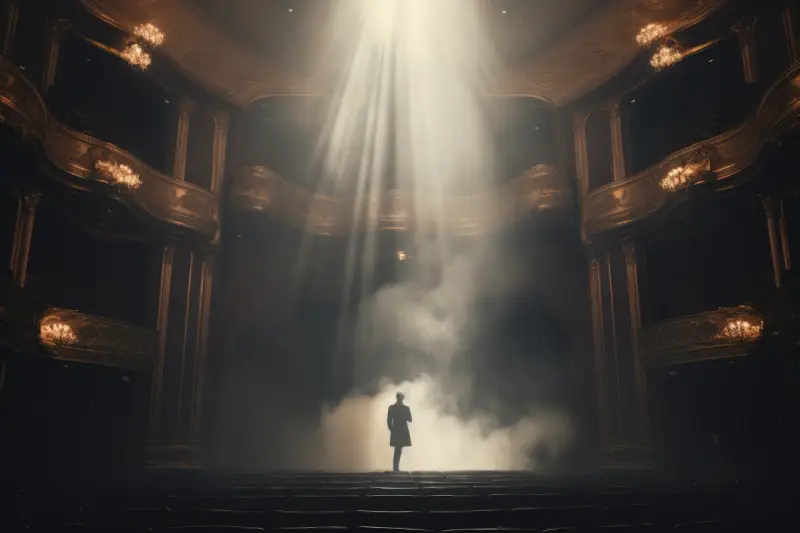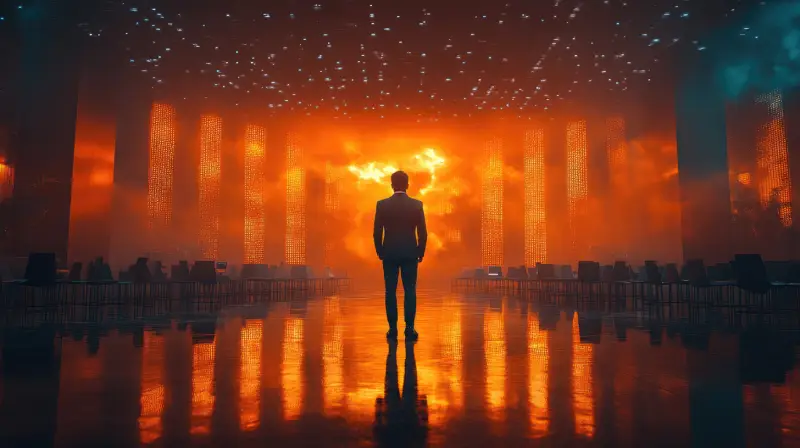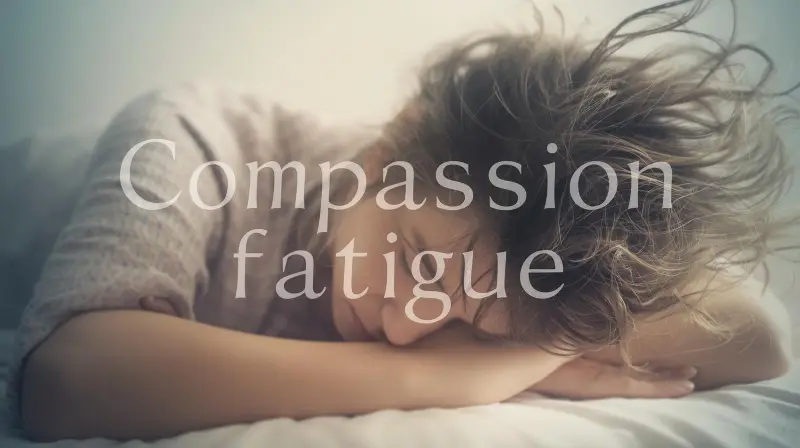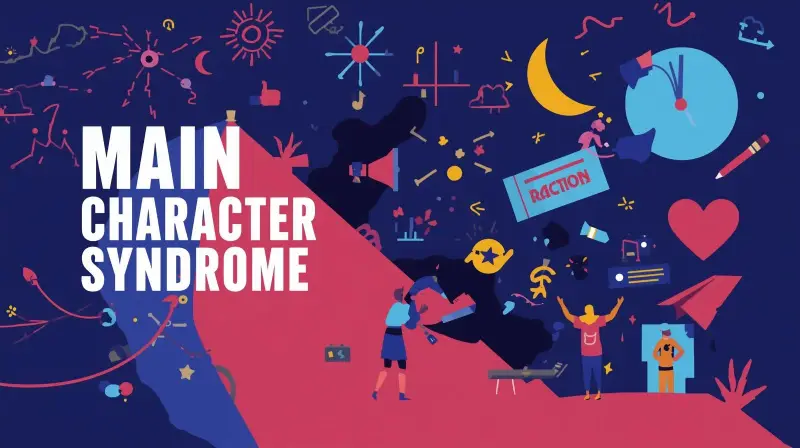Ever walked into a room and felt like all eyes were on you? Maybe you tripped a little, spilled coffee on your shirt, or said something that you immediately wished you hadn’t. And then, boom. You spend the rest of the day thinking about how everyone must be laughing, judging, or talking about that one moment. If yes, then you are not alone!
The truth is no one really thinks about your mistake after a second. That’s just the spotlight effect. It’s a sneaky little mental trick that makes you believe everyone’s watching or judging you, when they’re not. It not only makes you feel bad but also makes you anxious and self-conscious.
Apart from that, it can ruin your whole personality and mindset. You might start avoiding social gatherings, sharing your ideas, or even talking to people. That’s why it’s extremely important to understand what it is, its causes, and how to avoid it.
In this blog, we will share everything about the spotlight effect and how you can stop it from messing with your head.
What Is the Spotlight Effect?
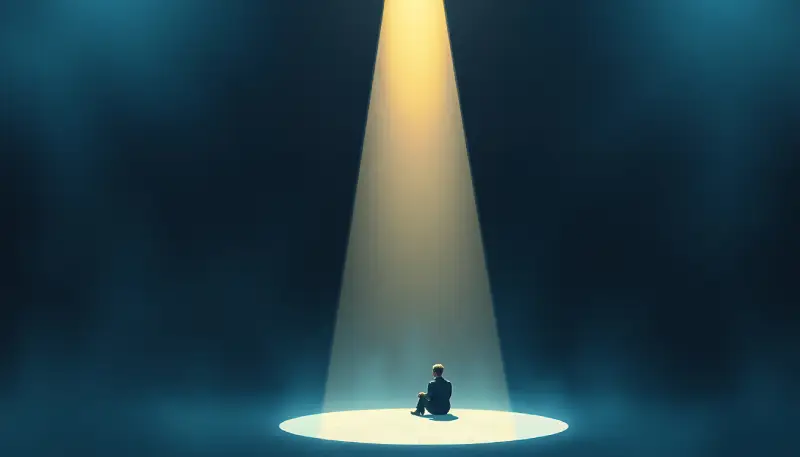
The spotlight effect is a psychological phenomenon in which people believe they’re being noticed more than they actually are. In simple terms, it’s like thinking there’s a spotlight on you all day, catching even the smallest things you do.
It’s like you’re standing under a big spotlight on a stage. But the stage is your classroom, office, party, or even your Instagram story. You feel like everyone is watching, analyzing, and judging your every move. That’s the spotlight effect in action.
This creates the feeling that the whole world knows your every mistake and flaw. You start thinking you’re constantly being judged for your actions, behavior, personality, and appearance.
But here’s the truth: most people are too busy thinking about themselves to notice what you’re doing. Yes, that’s true. In today’s fast-paced world, no one has time to think about someone else all day long.
It is important to note that spotlight effects happen in both positive and negative situations. For example, when you answer a question in class and think everyone is super impressed, or when you get it wrong and feel like everyone is secretly laughing at you.
The Origin Story – Where This All Began?

One of the best-known studies on this was done in 1999 by psychologists Thomas Gilovich, Kenneth Savitsky, and Victoria Medvec. They were curious about why people tend to believe that others are paying way more attention to them than they actually are. So, they decided to put it to the test.
They asked participants to wear an embarrassing t-shirt with a big picture of Barry Manilow on it and walk into a room full of people. Back then, wearing a shirt like that in public definitely wasn’t considered “cool.” After walking into a room filled with other people, the participants were asked how many people they thought noticed the shirt.
Unsurprisingly, they thought way more people noticed than actually did. The students believed 50% of their classmates would notice the embarrassing shirt, but in reality, only 25% did. That’s the spotlight effect, proven.
The takeaway? You think people notice way more about you than they actually do. In fact, most people are too caught up in their own world. They don’t really care or even notice as much as you think they do.
Why Do You Experience the Spotlight Effect?
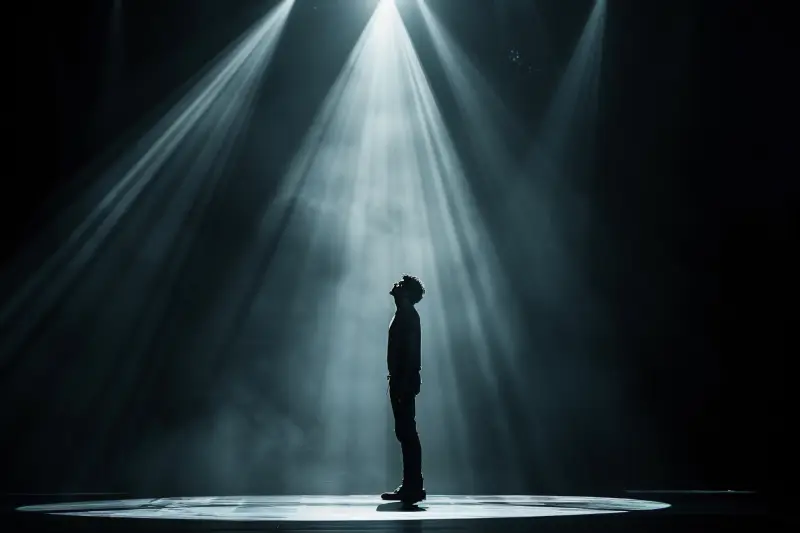
You basically tend to overestimate how much people pay attention to you because you are stuck in your own head. For example, if you mess up while speaking in a meeting, it might feel huge to you. But most others are thinking about what they’ll say next, not about your mistake.
And since you are so aware of your own actions, emotions, and flaws, it feels like everyone else must be, too. It’s like walking around with a mirror in front of you and assuming everyone else sees the same reflection. Have a look at some common reasons why you experience the spotlight effect:
Overestimation of Others’ Attention
You notice everything about yourself, such as your clothes, your tone, your slip-ups, and more. So, you assume people notice your actions and appearance more than they actually do. The truth is, just like you, everyone is mostly focused on themselves and not on others. You might stress over a joke that didn’t land, but others must forget it within minutes. They are busy replaying their own moments, not yours.
Egocentric Bias
Egocentric bias means you naturally view the world from your own perspective. You live in your head 24/7, constantly aware of how you look, how you act, and what you say. And because you notice everything about yourself, you assume others do too. This bias often makes you think your actions stand out more than they really do, even when others barely notice. It’s not about being self-obsessed; it’s just how the human brain works.
Fear of Judgment
Most people want to be liked, accepted, praised, and seen in a positive light. They fear being judged, rejected, or seen as awkward or different. So, when you feel you have done something imperfect or embarrassing, you panic immediately. This fear often makes you overthink that others are judging you or laughing at you. It leads to the Spotlight Effect, making small mistakes feels like huge blunders even when they’re not.
Social Pressure & Comparison
Social media, school, college, and the workplace all create spaces where you feel like you’re constantly being watched and compared. Even if no one is actually judging you, the feeling of being in the spotlight grows stronger. This increases the spotlight effect and makes you more self-conscious in daily life. In fact, seeing others’ achievements can make you overthink your own life and worry about how others see you.
Memory of Embarrassment
Past experiences can strongly influence the spotlight effect. If you’ve ever faced embarrassment or been made fun of before, you might start believing that everyone is always watching you. This can make you feel self-conscious all the time, even when no one is paying attention. For example, if you once tripped in front of a crowd and people laughed, you might now worry about how you walk, thinking it could happen again.
Evolutionary Roots
Long ago, being part of a group was essential for survival. Standing out in the wrong way could lead to rejection. That’s why the human brain evolved to closely monitor social situations. You become more self-aware and sensitive to how others see you. Even today, your brain stays alert to social threats, which makes you feel watched or judged more than you actually are. That is one reason the spotlight effect exists.
Real-Life Examples You’ve Probably Experienced
The spotlight effect is not something complex. Every person experiences it multiple times in their life. Let’s break it down with a few situations most of you must have faced:
That One Embarrassing Moment
You’re walking into a room, and you trip slightly. You feel your face go red, thinking everyone saw it and is silently judging you. However, the truth is that most people didn’t even notice it. And the few who did likely forget about it within seconds. No one’s going to keep thinking about that small moment.
Overthinking an Outfit
You walk into a party and start thinking, “Did I dress right? Are people staring?” But the truth is, most of them are too busy thinking the same thing about themselves. No one really cares unless it’s something truly unusual or out of place. So, it’s just you who is constantly thinking about your outfit and no one else.
Social Media Anxiety
Most of you must have faced this. You post something on Instagram and delete it five minutes later because it wasn’t getting likes. The fear that people are laughing or criticizing is classic Spotlight Effect. The truth is that most people are just scrolling and probably didn’t even notice. Even if the picture is not perfect, they just like it and scroll down.
Presentations and Public Speaking
If you’re nervous or underconfident, this can feel very real. You mess up or forget a line and instantly start thinking everyone’s judging you or laughing. But the reality is that most people in the audience aren’t paying that much attention. They’re usually just waiting for it to end so they can go back to their phones or grab a coffee.
How the Spotlight Effect Affects You?

This little mental trap not only makes you feel awkward or conscious, but it can also seriously mess with your confidence and behavior. The overthinking that comes with the spotlight effect can make you feel shy, compare yourself to others, and feel like you’re not good enough. Here’s how it affects you:
Makes You Self-Conscious
The spotlight effect makes you overly self-conscious, so even simple things can feel stressful. You might stop yourself from dancing, speaking in public, or wearing bold clothes because you’re afraid of being judged. This can disturb your personality, dreams, and overall lifestyle.
Leads to Overthinking
Ever wake up thinking about something small or silly you said last night? That’s the spotlight effect. It makes you replay tiny moments in your head, even though no one else is thinking about them. You’re the star of a movie no one else is watching.
Triggers Social Anxiety
If you always feel like people are judging you all the time, it can make you nervous in social settings. That nervousness makes you even more focused on yourself, which keeps the spotlight effect going on in your head. You may not be able to communicate or perform properly.
Decreased Authenticity
When you feel nervous, self-conscious, and inferior due to the spotlight effect, you start acting in ways that aren’t really you. Basically, you try to match what others expect, instead of being yourself. This leads to a lack of authenticity and takes away your real personality.
Reduced Empathy
Due to the spotlight effect, you tend to focus on your own feelings, thoughts, appearance, and behavior. This constant self-focus can actually reduce your ability to think about how others might feel. This makes it difficult to empathize with others and can affect your relationships also.
How to Overcome the Spotlight Effect and Boost Confidence
So, how do you stop feeling like you’re always on stage? To stay calm, confident, and positive, it’s important to overcome its effects. Here are some ways to turn off the mental spotlight:
Ask Yourself: Will This Matter Tomorrow?
Whenever any incident happens, ask yourself – will you even remember it a week from now? Probably not. And if you won’t, chances are no one else will either. Keep that in mind and stop thinking about what others might be thinking.
Flip the Perspective
Think about the last time someone else made a mistake in front of you. Did you think about it for hours? Probably not. You get busy in your own life. That’s how little others care about your so-called embarrassing moments, too.
Focus on Others
Instead of always thinking about yourself, try focusing on the people around you. Pay attention to them, ask questions, have real conversations, and build connections. The more you connect with others, the less you’ll stress about how you’re coming across.
Embrace Your Imperfections
You have to be okay with your flaws and accept that you’re human, and humans mess up. The more you do that, the less control the Spotlight Effect has over you. Laugh at your mistakes and embrace what makes you different. People connect with reality, not perfection.
Practice Mindfulness
Overthinking doesn’t just make you self-conscious; it can also lead to anxiety and even depression. Practicing mindfulness helps you break that cycle and stay in the present. The more rooted you are in the moment, the less you’ll fall into the trap of the spotlight effect.
Find an accountability partner
If things go out of your control, don’t hesitate to ask for help. You can talk to a friend, open up to someone you trust, or even consider therapy to reduce the effects. Having someone to support you can make a big difference in dealing with the spotlight effect.
Conclusion
The spotlight effect is a psychological phenomenon in which you believe you’re being noticed more than you actually are. This makes you think about even the smallest mistakes for a much longer time. The spotlight effect can happen due to many reasons, such as egocentric bias, fear of judgment, memory of embarrassment, social pressure, overestimation of others’ attention, and many more. It can lead to overthinking, make you feel self-conscious, trigger social anxiety, and even affect your daily life. To reduce its impact, ask yourself: will this matter tomorrow? If not, it probably won’t matter to others either. You can also try changing your perspective, accepting your imperfections, and focusing more on others instead of worrying about yourself. If you often feel this way, take time to understand the spotlight effect and slowly work on letting it go.
